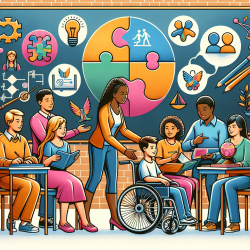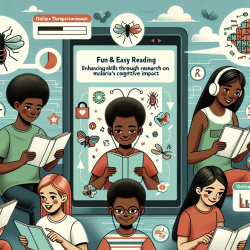Introduction
In the realm of special education, understanding the dynamics of effort can significantly enhance the way practitioners approach their work. The research article titled "Subjective (dis)utility of effort: mentally and physically demanding tasks" offers valuable insights into how effort is perceived and how individual differences in task preferences can influence performance and motivation.
The Essence of Effort
Effort, whether mental or physical, plays a crucial role in determining how tasks are approached and completed. The study highlights the concept of the inverted-U-shaped function, which suggests that tasks with moderate effort demands are perceived as most rewarding. This understanding can be pivotal for practitioners who aim to tailor their approaches to suit individual needs and preferences.
Applying the Research
As a practitioner, you can leverage the findings from this study to enhance your practice in several ways:
- Personalize Task Assignments: Recognize that individuals have varying thresholds for effort and tailor tasks to align with their optimal effort levels.
- Motivation Strategies: Utilize the understanding of the inverted-U function to motivate students by assigning tasks that are challenging yet achievable.
- Individual Differences: Consider personality traits and motivational factors when designing interventions, as these can significantly impact task engagement and performance.
Encouraging Further Exploration
While the study provides a foundational understanding of effort and task preferences, it also opens the door for further exploration. Practitioners are encouraged to delve deeper into the nuances of how different individuals perceive effort and how this perception influences their learning and performance.
Conclusion
By embracing the insights from this research, practitioners can enhance their ability to motivate and engage students effectively. Understanding the subjective disutility of effort and individual task preferences allows for a more personalized and impactful approach to education.
To read the original research paper, please follow this link: Subjective (dis)utility of effort: mentally and physically demanding tasks.










